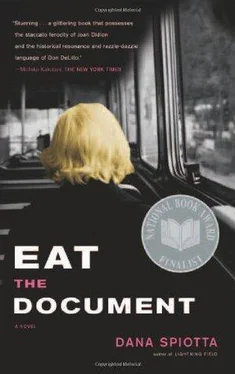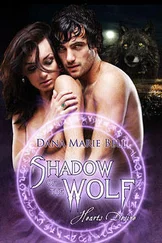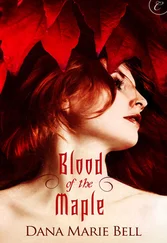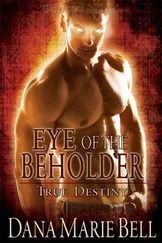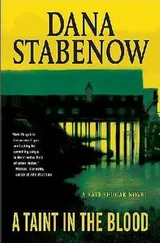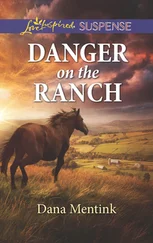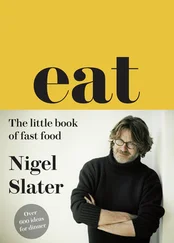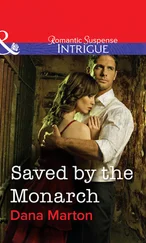Dana Spiotta - Eat the Document
Здесь есть возможность читать онлайн «Dana Spiotta - Eat the Document» весь текст электронной книги совершенно бесплатно (целиком полную версию без сокращений). В некоторых случаях можно слушать аудио, скачать через торрент в формате fb2 и присутствует краткое содержание. Год выпуска: 2006, Издательство: Scribner, Жанр: Современная проза, на английском языке. Описание произведения, (предисловие) а так же отзывы посетителей доступны на портале библиотеки ЛибКат.
- Название:Eat the Document
- Автор:
- Издательство:Scribner
- Жанр:
- Год:2006
- ISBN:нет данных
- Рейтинг книги:3 / 5. Голосов: 1
-
Избранное:Добавить в избранное
- Отзывы:
-
Ваша оценка:
- 60
- 1
- 2
- 3
- 4
- 5
Eat the Document: краткое содержание, описание и аннотация
Предлагаем к чтению аннотацию, описание, краткое содержание или предисловие (зависит от того, что написал сам автор книги «Eat the Document»). Если вы не нашли необходимую информацию о книге — напишите в комментариях, мы постараемся отыскать её.
shifts between the underground movement of the 1970s and the echoes and consequences of that movement in the 1990s. A National Book Award finalist,
is a riveting portrait of two eras and one of the most provocative and compelling novels of recent years.
Eat the Document — читать онлайн бесплатно полную книгу (весь текст) целиком
Ниже представлен текст книги, разбитый по страницам. Система сохранения места последней прочитанной страницы, позволяет с удобством читать онлайн бесплатно книгу «Eat the Document», без необходимости каждый раз заново искать на чём Вы остановились. Поставьте закладку, и сможете в любой момент перейти на страницу, на которой закончили чтение.
Интервал:
Закладка:
But tonight Nash found himself doubly irritated and unable to resist glancing over at Josh sitting there next to Miranda. The lights were lowered, and someone showed a video of two G.I. Joe dolls, one dressed like Saddam Hussein, the other, Michael Jackson. It was a nonstarter, a stoner’s idea of social critique. Afterward, the “filmmaker” held a forum.
“So, any comments? Obviously, this is just a rough cut. We are going to get ten minutes together, then hit the festivals, get some backers to put up money for digital animation, Avid, Pro-Tools and Flash formatting.” He wore wire-framed, narrow oval glasses low on the bridge of his nose and his black hair long and spiked straight up in sticky, unmoving finger pulls. A tattoo of an overwrought ivy strand riddled with viciously drawn thorns started at his neck, disappeared under his shirt until it reached his forearm, then wound painfully to encircle the delicate bones of his wrist. It looked as if a killer plant had crawled under his clothes and was stealing around his limbs to strangle and devour him. Nash found the tattoo distracting, and he couldn’t really even look at the kid after a time.
“I think that doll stuff is played out. I remember seeing Barbie doll reenactments of historical events back in the early ’90s,” said Sissy, looking very sober with two neat, tight braids and precision-cut bangs. Oversized vintage aviator-shaped glasses overwhelmed her face and would have evoked low-budget porn movies if the lenses had a sunset tint, but since they were clear glass and obviously prescription, they seemed more like something a middle-aged serial killer would wear. Nash realized this was precisely the look she was trying to achieve, and he couldn’t help taking some pride in the fact that he could “get” it. Because most of the kids recognized her as a writer for the more underground of the local weekly magazines, when she spoke they regarded her as an absolute authority. Of course she only had a music column, but still, she was attached to the media, so everyone treated her as if she might bestow some instant fame on any one of them. There was nothing these kids respected like media connections.
“The copyright infringement stuff with Mattel or Hasbro that inevitably happens with any Barbie or G.I. Joe reference is also sort of pointless. No one is going to let you show the thing publicly, but you can naturally put the cease-and-desist letter in your press packet and try to get some cred that way, I suppose. But it has to get a lot of notoriety to overcome the fact that it won’t really be seen.”
Josh raised his hand.
“Actually, have any of you heard of the ’60s filmmaker Bobby Desoto?” he said. “Desoto made a series of films from 1968 to1972. Many are on Super Eight, and some of them use dolls, or clay figures, in hand-done stop-action. They look amazing: beautiful in their own right, with that Lotte Reiniger sort of primitive-intricate animation, pinhole lighting and paper effects, but also with these very funny absurd political voice-overs, like La Chinoise, Godard’s film with the speeches about the Vietcong recited in flat, singsong tones by French beauties in miniskirts. Where the tone is such that you are never sure if the extreme didacticism is being satirized or espoused. It is both. Mix Godard with Gumby and Georges Méliès, that’s what Desoto’s films are like.” Josh smiled at the group of perplexed but nonchalant cineastes staring at him.
“Desoto clearly was way ahead on all of this. Including copyright stuff. He made several films out of other films and news clips. He looped and sampled found clips, juxtaposed things for various effects. A prankster, as well. He also did some straightforward documentary stuff, not nearly as successful as the other things. He even got Jean-Pierre Léaud to narrate one of them, half in French and half in highly accented, rough English.”
“Are his films available on video?” a girl asked.
“No, but there is this sort of neo-Luddite group, the Formatters?” Some of the people nodded. “They are all about retro formatting. They preserve and disseminate stuff in its original format, like eight-millimeter, Super Eight or sixteen-millimeter film. Vinyl records, eight-track tapes, even laser discs. As long as it is obsolete, it’s included. No digital remastering or video transferring. You can also buy projectors from them. Anyway, they deal largely in bootleg stuff, so it is semi-illegal. All the Desoto stuff is bootlegged.”
“So the artist doesn’t get any money for it?” asked Miranda.
“Well, Desoto, as it happens, was involved in some terrorism, bombings related to weapons manufacturers, I think, toward the end of the Vietnam War, and he went underground. He is still a fugitive. So there is no way for him to get any money.”
Nash glanced in Josh’s direction, and then he raised his right hand with his index finger and middle finger together and extended. A reluctant gesture. Josh nodded at him.
“So, how did you find this neo-Luddite bootlegger group?” Nash asked.
“On their website,” Josh said and then smiled widely at Nash.
“Naturally,” Nash said, “on their neo-Luddite website.”
“There are actually quite a few of those. They are finally not really antitech. They are kind of tech fetishists in a way. When you think about it.”
“The Formatters, huh?”
“Desoto was a genius.”
Nash shrugged. “Sounds to me like they just value whatever is obscure and difficult to access. Obscuristas. Seems elitist.”
After the group meeting was over and everyone had left, Miranda reappeared, either not having left at all or returning. Nash did the inventory. This meant a clipboard and a title count of all the books on the shelves. It meant counting all the backup books in boxes. It also meant reshelving the books the kids put in the wrong place. He did this once a month, working all night. He liked it, usually — concentrating but not thinking. Making order. He listened to his music — Thelonious Monk tonight. Miranda watched him work until he finally paused.
“I’ve missed having you around,” he said.
“I’ve been in New York. I’m moving there, actually.”
“I heard about that. Great. That’s great.”
They both nodded at each other. Coleman Hawkins blew down the last verse of “Ruby, My Dear.”
“Can I help you do inventory?” she asked.
Nash shook his head.
“Can I hang out for a while?”
“Of course.”
She watched him mark his clipboard. After ten minutes or so, she took out one of her hash-laced cigarettes and lit up.
“Smoking in the store?” he said. She just laughed and inhaled, holding the smoke in her lungs. She held the joint out to him. He walked over and took it from her.
“You still bite your nails,” he said. He took a drag. She sat down on the floor and crossed her legs.
“I should put that nasty nail polish on, the stuff that tastes awful, so I won’t bite them.” She pulled him next to her. He sat on the floor and took another drag.
The hash made the music expand and deepen around them. Nash found the intensity almost unbearable. The music wasn’t meant to be background.
“Are you upset about something?” she said.
He handed her what remained of the hash cigarette.
“I’m moving with that guy, Josh. He went to my high school, you know.”
“I’m not—”
“I don’t mean you are upset about me and Josh, I just meant you seemed upset about something—”
“I didn’t know you went to high school together.”
“—and then I said that about me and Josh next because it was on my mind.”
There was a long, piano-filled pause between them. Nash laughed, nervously. He stood up. “I have to finish inventory. Unfortunately, my concentration is so fragile I can’t talk and count. And with the hash, I may yet drool all over the books.”
Читать дальшеИнтервал:
Закладка:
Похожие книги на «Eat the Document»
Представляем Вашему вниманию похожие книги на «Eat the Document» списком для выбора. Мы отобрали схожую по названию и смыслу литературу в надежде предоставить читателям больше вариантов отыскать новые, интересные, ещё непрочитанные произведения.
Обсуждение, отзывы о книге «Eat the Document» и просто собственные мнения читателей. Оставьте ваши комментарии, напишите, что Вы думаете о произведении, его смысле или главных героях. Укажите что конкретно понравилось, а что нет, и почему Вы так считаете.
